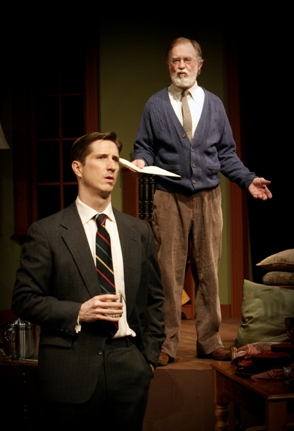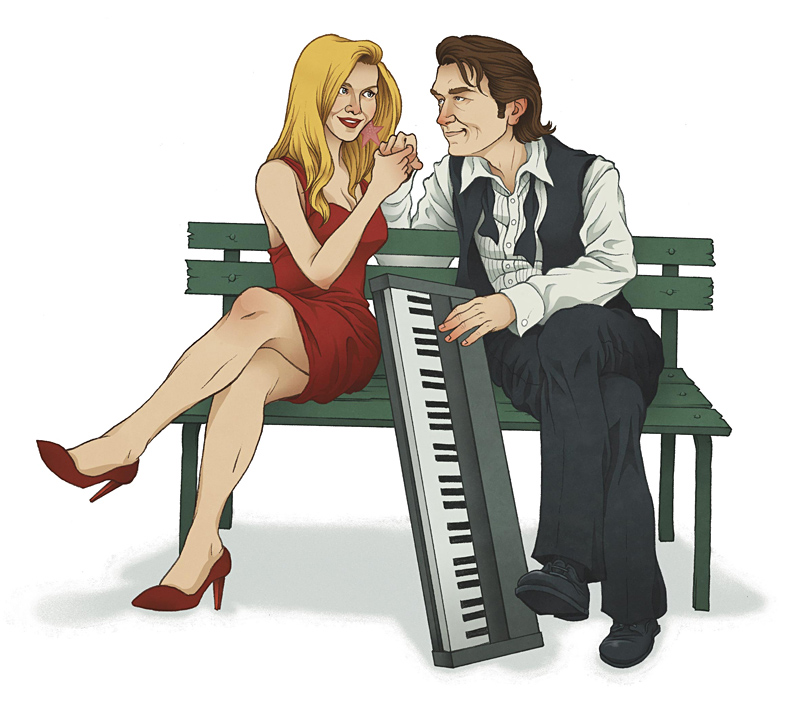Nine years after Sept. 11, Sharr White’s Sunlight banks its relevance on the idea that those attacks are still capable of eliciting the same emotional response from an audience that they did back then. Shameful as it may be to admit, they just don’t, and the fact that White roots his play in the world of aristocratic, East Coast academia doesn’t much help ratchet up the empathy-meter either.
Matthew (John Wray) is the president of an unnamed East Coast university whose chief accomplishment was building the law school into an elite institution. The dean of that law school is Matthew’s son-in-law, and onetime protégé, Vincent (John Ulman). After 9/11, Vincent is selected for a Department of Defense workgroup charged with establishing legal standards for foreign terror detainees. His migration to the land of Rumsfeld so irks the more liberal Matthew that he trashes his son-in-law’s office in a drunken fit of rage, an act caught on security camera which puts his job in severe jeopardy. Caught in the middle is his daughter, Charlotte (West Seattleite Peggy Gannon), who turns her father’s home into a profane den of crisis management, much to the chagrin of his longtime personal assistant, Maryanne (Karen Nelsen).
Merely introduced in the play’s first half, the superb Ulman takes the baton from an equally strong Gannon and owns the post-intermission proceedings. Vincent, too, is under investigation for flubbing his gig, and the Scotch-fueled second act has two obscenely successful men about to be walked off the highest of professional planks, quarreling in midair until they hit the dirt. Absent the 9/11 conceit, this could make for a fascinating study in upper-crust psychology. But when you invite terrorism into your living room (where the entire play is set), it’s impossible to ignore—not just an elephant or 800-pound gorilla, but the fucking Concorde. And once there, like the Concorde, it feels sadly dated.
Had Sunlight risen in the belly of the Bush era, such a criticism would be rendered moot. But the public has since cast a clear verdict in favor of Matthew’s perception of overzealous interrogation tactics (aka torture) involving terror suspects. Hence, Vincent has been proven wrong before he can even make his case, and the heart of White’s script, while boasting considerable ancillary strengths, is instantly compromised as a result.








